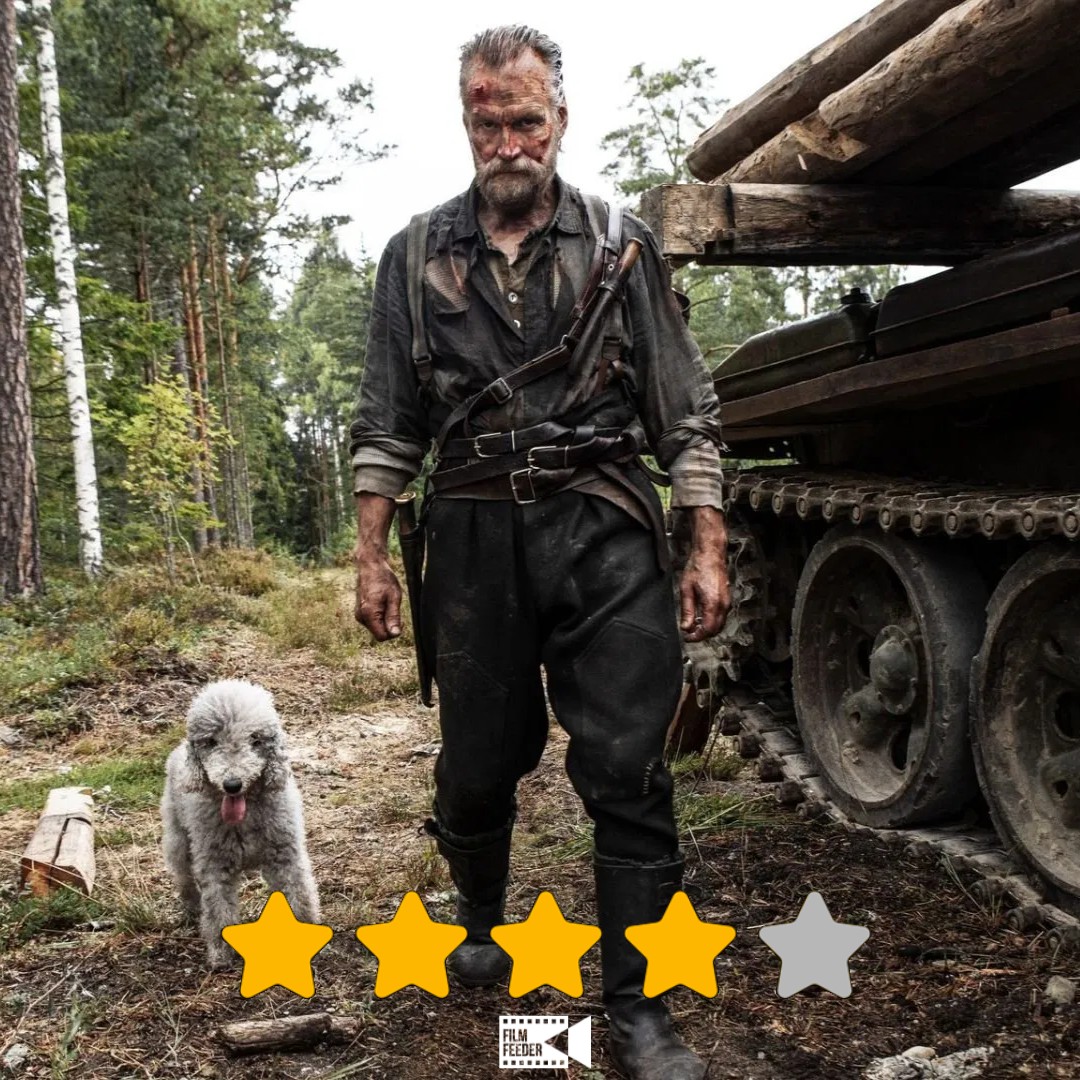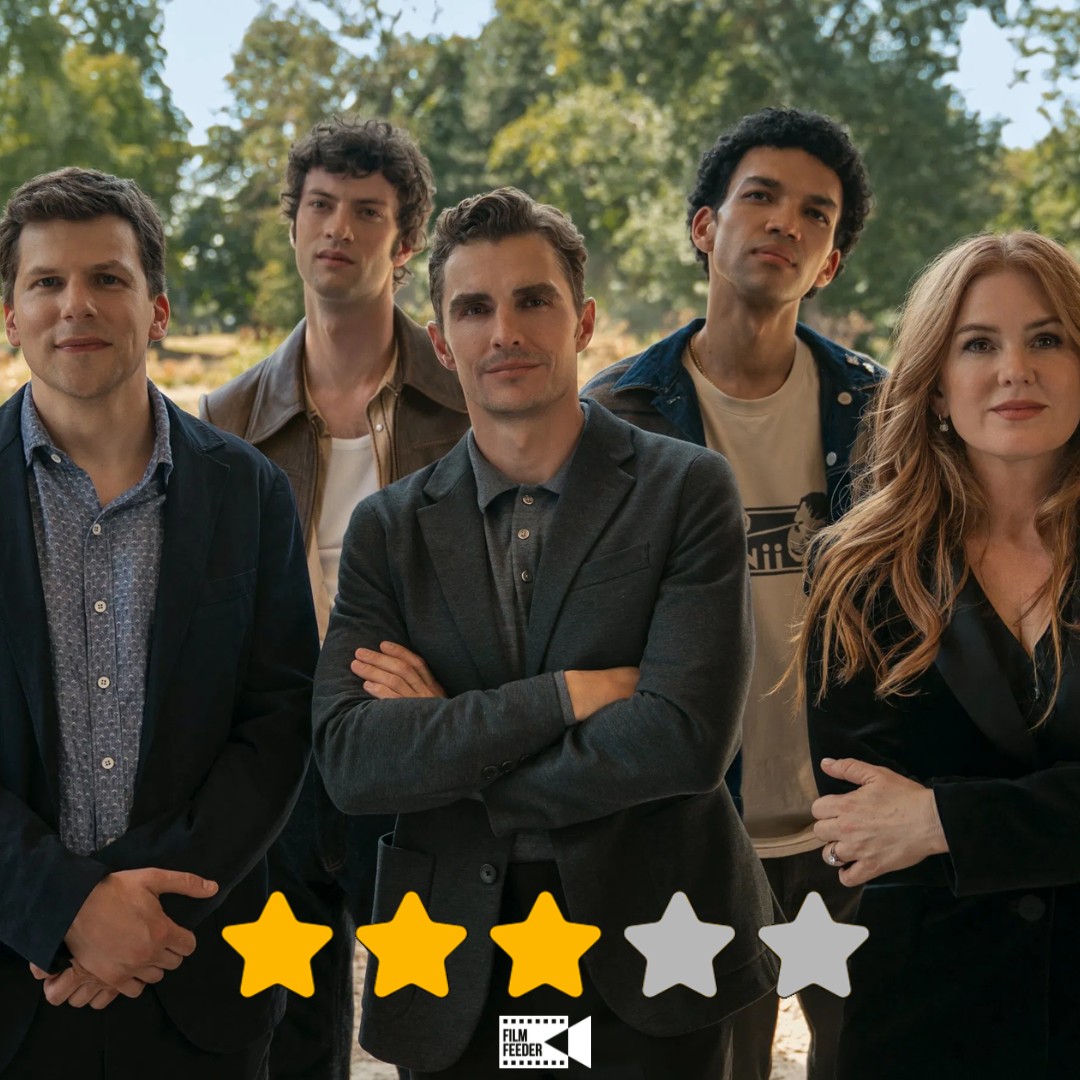
Late Shift (dir. Petra Volpe)
Certificate: 12A
Running Time: 91 mins
UK Distributor: Vertigo Releasing
UK Release Date: 1 August 2025
WHO’S IN LATE SHIFT?
Leonie Benesch, Sonja Riesen, Selma Aldin, Alireza Bayram, Ali Kandaş, Aline Beetschen, Jasmin Mattei, Urs Bihler, Nicole Bachmann, Doris Schefer, Margherita Schoch, Lale Yavaş, Pema Shitsetsang
WHO’S BEHIND THE CAMERA?
Petra Volpe (director, writer), Lukas Hobi and Reto Schärli (producers), Emilie Levienaise-Farrouch (composer), Judith Kaufmann (cinematographer), Hansjörg Weißbrich (editor)
WHAT’S IT ABOUT?
A nurse (Benesch) embarks on a gruelling shift at an understaffed hospital…
WHAT ARE MY THOUGHTS ON LATE SHIFT?
Even after a global pandemic, or perhaps because of it, the number of people eager to become doctors and nurses is alarmingly low. Shortages of staff in hospitals, local GP surgeries and other healthcare establishments are becoming more and more commonplace, not just across the NHS but in medical organisations around the world, to where the World Health Organisation currently estimates there could be as many as four million nurses missing in action by the year 2030.
It’s an alarming statistic that Late Shift, a German-Swiss co-production from writer-director Petra Volpe, makes its primary message in a film that shows the never-ending strife which nurses actually willing to do the work have to face when they’ve got little support of their own. It’s nerve-wracking and sometimes a little soppy, but the intent is clear, and it works as a bold statement on the current conditions of our supposedly reliable health institutions.
Late Shift takes place entirely at a hospital in Switzerland, where German surgical nurse Floria (Leonie Benesch) arrives for the start of an afternoon/evening shift, just as things are already descending into chaos. The lack of fellow nurses on the clock leaves Floria and a handful of staff to deal with numerous patients all at once, including an elderly dementia-ridden woman, a businessman who won’t get off his phone prior to gallbladder surgery, an anxious man eagerly awaiting news about his cancer prognosis, and a group of Turkish brothers hounding the staff about their dying mother. As the hours go by, Floria finds herself under enormous pressure to care for every single patient, even those who are extremely flippant and sometimes abusive towards her, such as a very rude and entitled private resident who’s having treatment for pancreatic cancer, until a few decisive moments derail the entire shift for her.
From the second that Benesch’s Floria first arrives on the ward where we’ll be spending the majority of the film, Volpe keeps her finger pressed on the double-speed button and doesn’t let go, as we alongside the protagonist experience a bombardment of medical situations without so much as a five-second pause for breath. Her first assignment of the day is having to change the clothes of a very incontinent old woman, and as it turns out that’s one of the less chaotic moments, as the filmmaker throws one thing after another at both her and us until we too start to feel the immense pressure she’s always under, with patients frequently approaching or summoning her via devil-red light alerts about queries she either has no time for or is too busy trying to already solve.
Volpe captures a lot of it through a series of long takes that follow Floria through the ward’s hallways and into several patients’ rooms, while entire scenes are dedicated to showing the intricate process of preparing needles for injections, which are done with such precision and care that you wonder if Benesch herself has had prior experience in handling sensitive medication (more likely, though, she’s just a damn good actor). The editing is slick, piecing together all this disarray to create the illusion of an endless cycle wherein this overworked nurse tries desperately to keep her composure, even as patients are shouting at her or, in one case, physically hitting her. Volpe’s filmmaking does well to put the viewer in her exhausted (and eventually muddy) shoes as she inches closer and closer to a full-on breakdown, all while having little to no support of her own which makes it all the more upsetting that she has to endure this pressure without even a bit of thanks from anyone.
Sometimes, the script veers dangerously close to full-on medical soap opera territory as the lives of various people around this hospital (mostly the patients, for outside of Floria we don’t get many scenes with the few other nurses on this shift) are tapped into with overblown sentimentality. Emotional scenes with cancer patients and emotional family members can feel magnified for dramatic effect, which disrupts the pressured and grounded tone that Volpe is otherwise going for, and occasionally brings the film to a brief halt. One such instance sees Floria engaging in a singalong with an elderly dementia patient, and as well-intentioned as the moment may be there is an unmistakable corniness to it that makes it surprising that other characters don’t join in, like it’s the “Wise Up” sequence from Magnolia. Of course, it never becomes as ridiculous as Grey’s Anatomy, but it does nonetheless take you out of the film’s vibe, even for just a few moments.
But for the most part, Late Shift is effective viewing that communicates its point with firmly dramatic rigor, as Volpe highlights the mental and physical toll of working in such understaffed conditions, with no time to compose oneself before moving right onto the next task. Its goal isn’t to offer swift solutions, but rather to show via a semi-fictional lens how things are in medical practices around the world, and therefore raise awareness that staff shortages in this particular field, where someone could fall seriously ill or worse if left unattended due to not enough people on the clock, could spell disaster for global health should the issue not be looked into.
The message is one that anyone in some sort of medical profession, whether they’re a doctor or nurse themselves or simply a receptionist at the local GP, can undoubtedly relate to, and hopefully with this film making waves many more will relate to it as well.
SO, TO SUM UP…
Late Shift is an effective medical drama that reveals the mental and physical toll of working in a busy and concerningly understaffed medical environment, which filmmaker Petra Volpe and a commendable lead turn by Leonie Benesch convey with stressful precision and occasional overblown sentimentality.














0 Comments